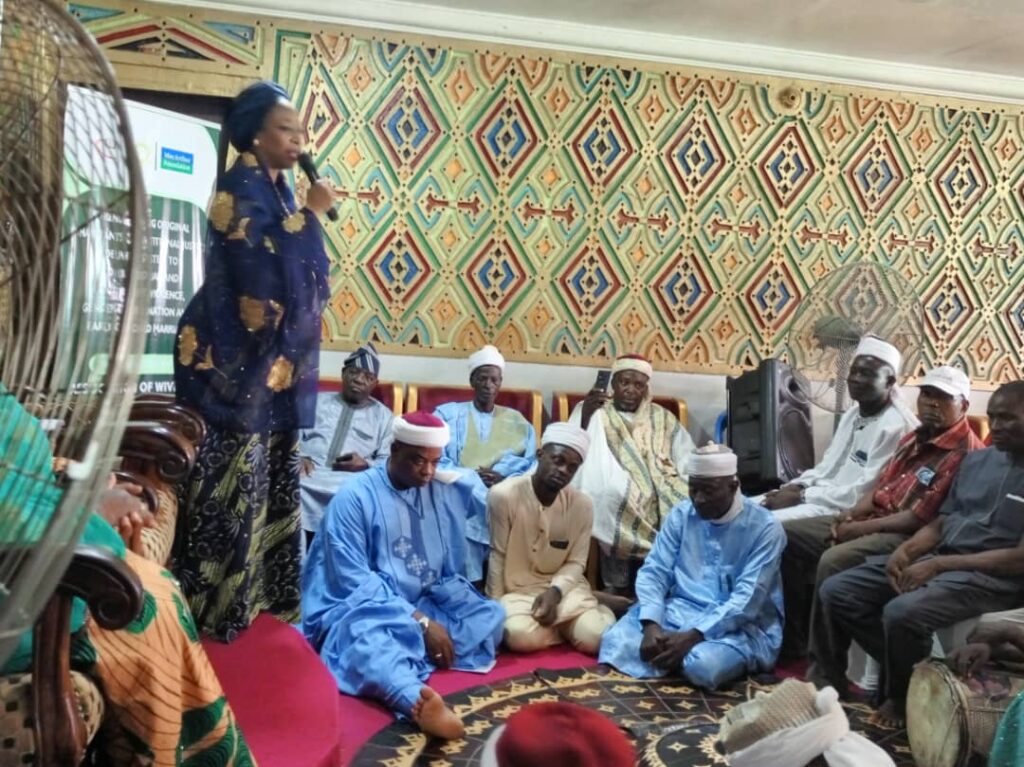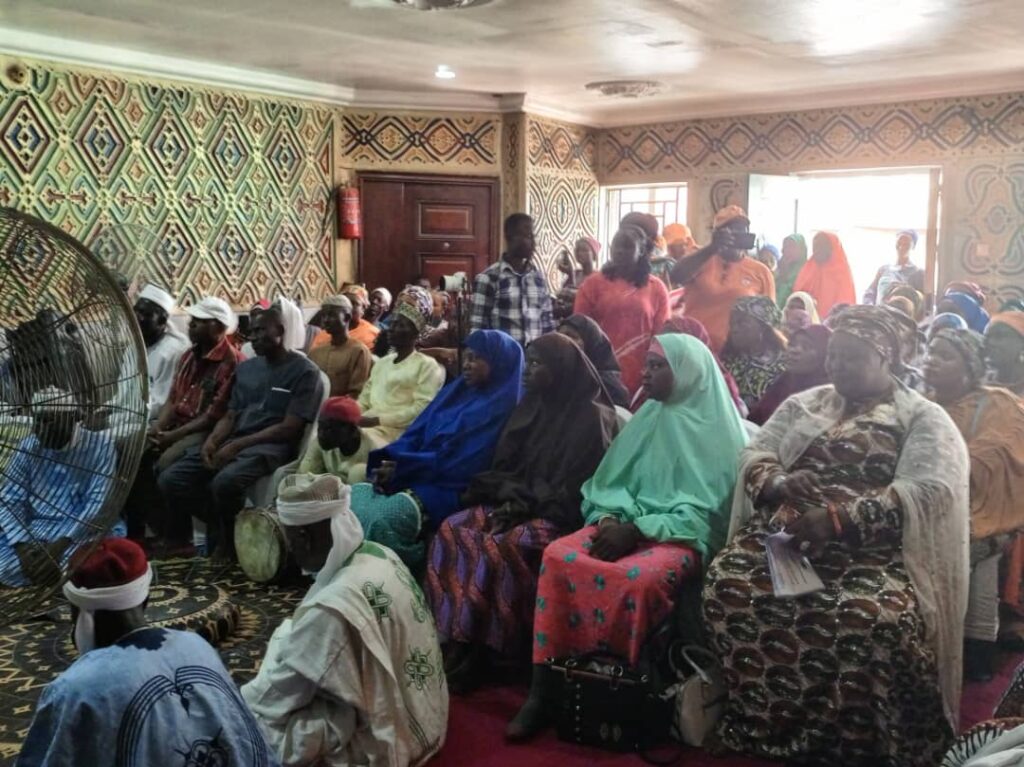GBV:Wives of FCT Traditional Rulers Lead Grassroots Campaign, Calls for Safeguard to Women’s Right.
By Raymond Enoch
In a bold grassroots movement to dismantle harmful cultural practices and safeguard the rights of women and girls. This strong call is coming as the wives of traditional rulers in the Federal Capital Territory (FCT) have launched a powerful campaign against gender-based violence and child marriage.
The advocacy drive, spearheaded by the FCT Traditional Rulers’ Wives Association in collaboration with the FCT Women Affairs Secretariat, took centre stage during a community outreach programme in the Abaji Area Council. The event drew participants from across rural communities and featured awareness sessions, public dialogue, and practical strategies for addressing abuse and discrimination.

President of the Traditional Rulers’ Wives Association, Hajia Hauwa Ibrahim Adamu, underscored the urgency of the initiative.
“When we educate the woman, we empower the family. When we protect the girl child, we secure the future,” she said. “Our women must not remain silent in the face of abuse. The time to rise is now.”
From all 17 chiefdoms, voices echoed in unison. Mrs. Gloria Ayedoo, wife of the Etsu of Kwali, delivered a succinct rallying cry: “Enough is enough.” The message was clear—dignity, safety, and justice are rights, not privileges.
Dr. Adedayo Benjamins-Laniyi, Mandate Secretary of the FCT Women Affairs Secretariat, reaffirmed the government’s backing for the initiative, noting that the outreach aligns with President Bola Tinubu’s Renewed Hope Agenda.

“We are committed to expanding advocacy across all six Area Councils,” she stated. “Through the Renewed Hope Agenda, we are delivering structured interventions that include awareness, education, empowerment, and access to justice. No woman will be left behind.”
Traditional institutions also pledged their support. His Royal Majesty, Baba Yunusa Adamu, the Ona of Abaji, applauded the initiative and urged other traditional rulers to follow suit.
“As custodians of culture, our role is to protect, not to oppress. These women have our full support,” he said.
The outreach drew a diverse coalition of stakeholders—religious leaders, youth advocates, women’s groups, persons with disabilities, and justice sector representatives—all united in a common cause: to protect and uplift women and girls in every community across the FCT.
This campaign is supported by the MacArthur Foundation through the Resource Center for Human Rights and Civic Education.
With royal voices rising from within and grassroots action gaining momentum, the campaign against gender violence in the FCT is no longer symbolic—it is a movement in motion.








